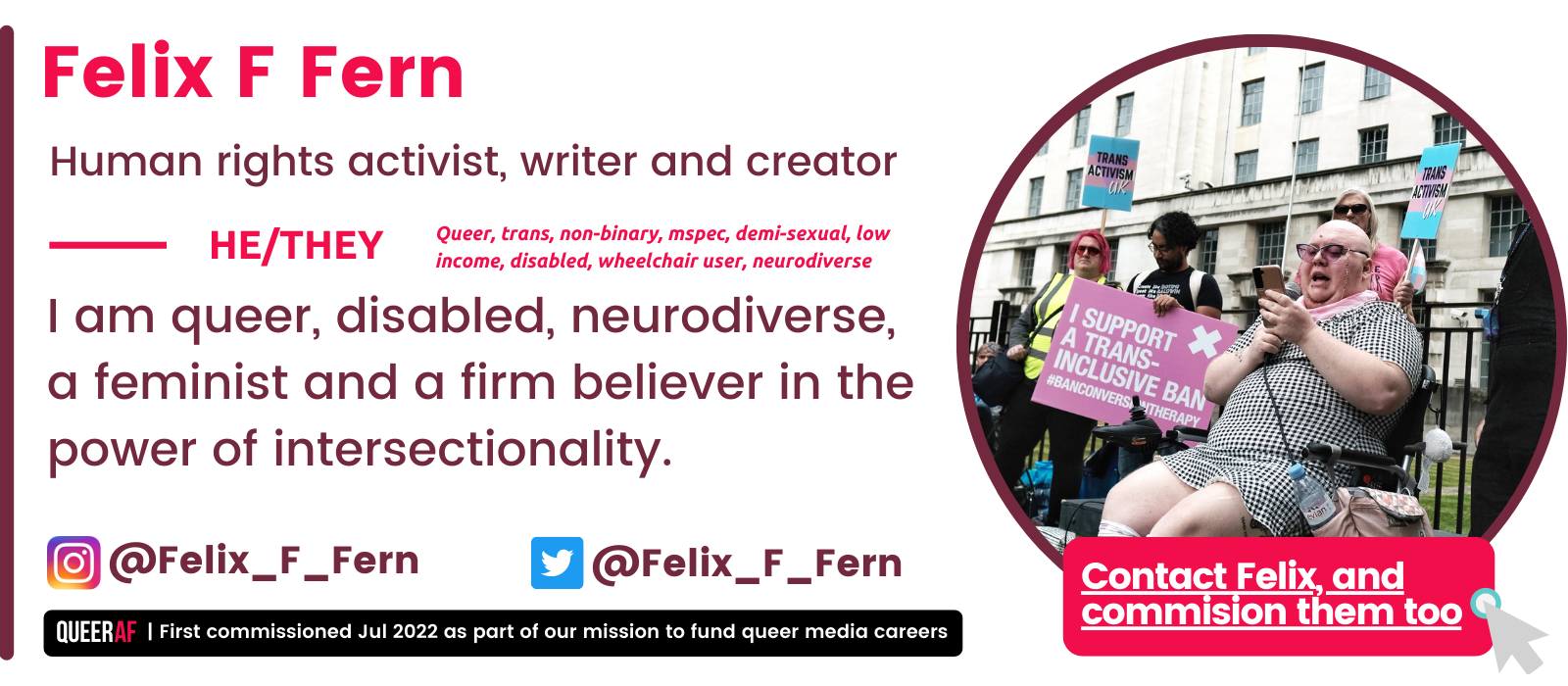
TL;DR: Gender-critical campaigner Maya Forstater has won part of her employment tribunal appeal against her former employer. The judgment found two instances of "direct discrimination" and one of "victimisation". The case created an air of uncertainty, but this ruling came largely due to a lack of clear policies at her employer, rather than at the expense of trans rights.
Exactly one week after hundreds of trans people and allies took to Downing Street to remind the government of the importance of lawfully protected marginalised statuses at the Not Safe To Be Me protest, Maya Forstater won her multi-year employment tribunal centred on her ‘Gender Critical’ beliefs.
The judgment found two instances of "direct discrimination" and one of "victimisation." The case was looking at why her employer did not renew her role and if this was as a result of her views on transgender women.
Catch me up: What’s the background?
In 2019, the non-profit think tank The Centre for Global Development (CGD) decided not to renew the contract for one of its staff, development researcher Maya Forstater, following social media posts in which she described transgender women as “men”.
This led to the employment law court case ‘Forstater v CGD’, which concluded on Wednesday 6th July 2022.
The case centres on Forstater’s assertion the decision not to renew her contract was discrimination. This followed staff issuing complaints about her comments online. It also looked at Forstater bringing and sharing ‘Gender Critical’ material and opinions in the workplace that some of her colleagues considered offensive.
She initially lost her first claim but this was overturned on appeal in 2021. The appeal court judged that although people do not have the right to misgender transgender staff, ‘Gender Critical’ beliefs are protected under UK law.
That ruling created an air of uncertainty.
The case was then sent back to a tribunal. This upheld two complaints of direct discrimination and one of victimisation. Two other complaints of direct discrimination and one of victimisation were unsuccessful. - The Guardian
With this week’s final judgment, we can begin to digest the last few years and figure out how to move on from what has been a complicated ordeal.
What does this mean for the trans community?
We can look to higher courts than Employment Tribunals which have made rulings that take precedence over this decision.
See for example ‘Mackereth v DWP, an employment tribunal centred around a member of staff having anti-trans beliefs. This was heard at an Employment Appeal Tribunal, a higher court.
That means that the authority of those judgments can provide us with reassurance that when matters centred on equality are escalated, it is protected minorities that ultimately win.
In this case, thanks to the company having good HR policies in place, the ruling stated that the staff member’s dismissal was fair due to their discriminatory anti-trans actions.
It’s a lesson and a possible way for us to prevent another judgment like ‘Forstater v CGD’.
Understand the week's most complicated stories in less than five minutes. Join hundreds of LGBTQIA+ people who we explain the news to every Saturday
What can employers take away from this case?
A major reason for CGD’s failure was its lack of a solid policy on staff’s social media use and harassment. If they had been clearer about what any of its staff could or couldn’t post on social media, the decision this week may have been different.
In today’s world, that should be a necessity for any organisation. That's the lesson: it’s vital for all businesses to have clearly laid out HR policies to ensure the protection of all staff.
Equally, ‘Gender Critical’ beliefs being considered protected does not change the protections for trans people in the Equality Act 2010. That act established that transgender people are protected by law for their identity.
We are legally entitled to a working life free from discrimination and harassment, even if our trans identity is not known.
If someone is perceived to be transgender and experiences discrimination as a result, this is still a breach of the law and can be challenged in any workplace.
It may be an uncertain time to be trans in the UK right now, but despite everything, there is one key takeaway from this week:
We are protected by the law and it’s important for workplaces to ensure that we are similarly protected by well-written, appropriately researched policies.
This explainer was just one part of our free weekly newsletter, that helps you to understand the LGBTQIA+ headlines - Try it

Update - 9/7/22 - 11 pm BST: This piece previously said:
- "The judgment found Maya Forstater was 'unfairly dismissed'." 'Unfair dismissal' is also a legal term and could have been read as the ruling. All instances have been amended to reflect the ruling said not renewing Forstater's contract - was due to "direct discrimination" because of her views.
- "Distributing ‘Gender Critical’ leaflets." The case looked at Forstater bringing and sharing materials deemed to be offensive into the office and on workplace channels. We've changed the word 'distributing' to 'bringing and sharing.'
- "victimisation" - This article previously connected the "victimisation" ruling with the decision not to renew her role as a result of her views on transgender women. It now says this was what the case was about.











